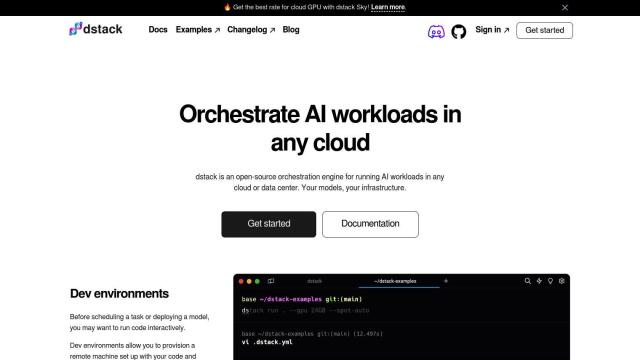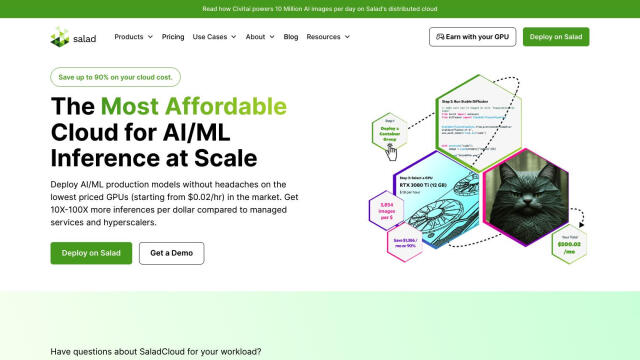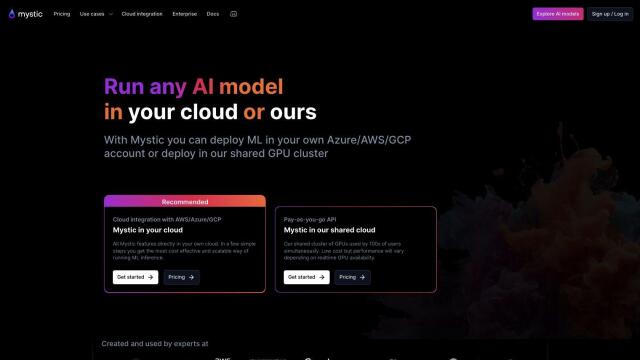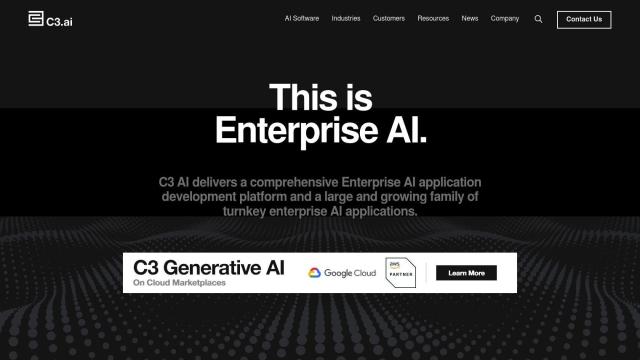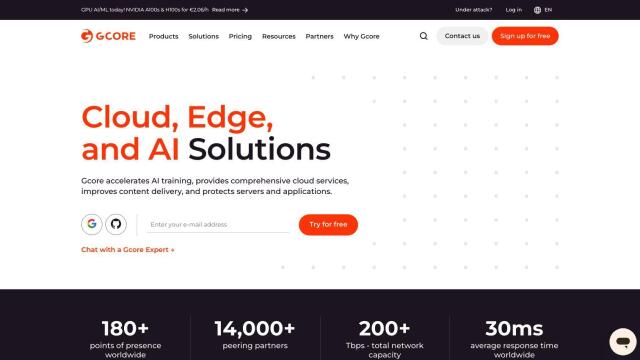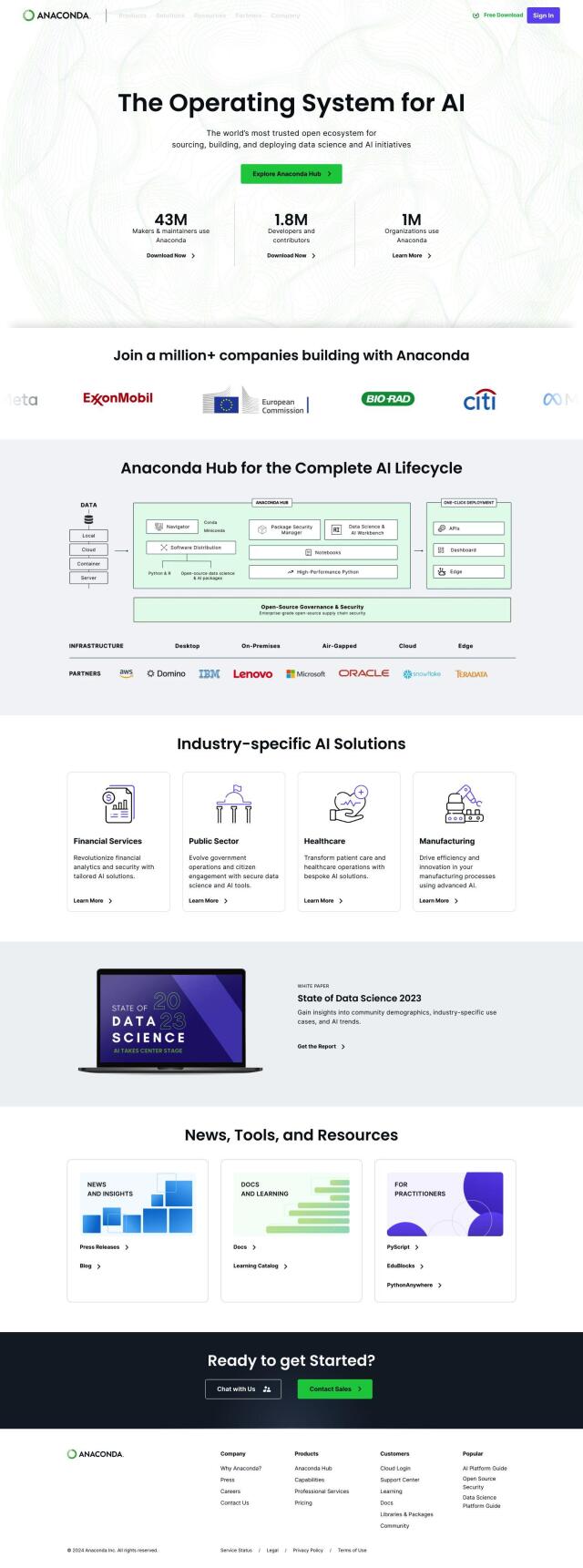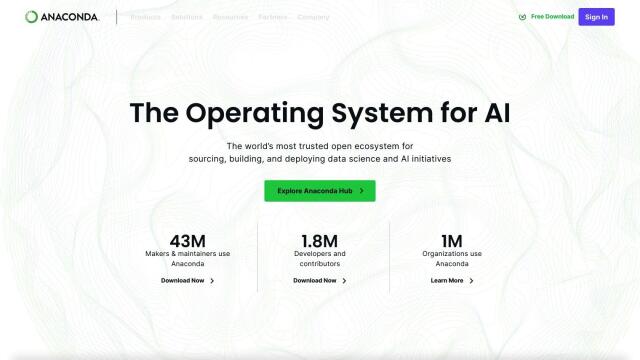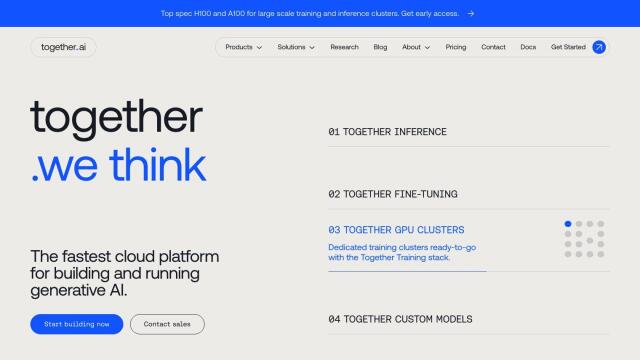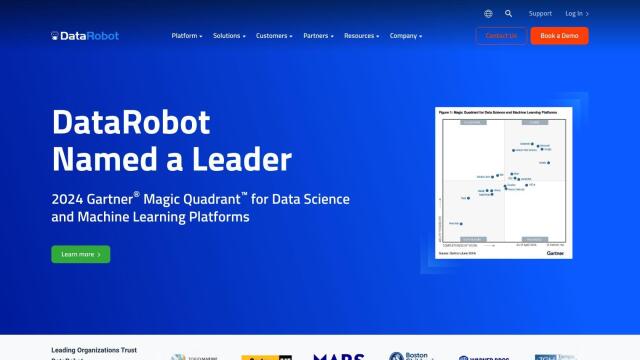Question: I'm looking for a high-performance computing solution to support AI-powered financial workloads, can you help?


Anyscale
If you need a high-performance computing foundation to run AI-based financial workloads, Anyscale is a mature and powerful option. It combines the best performance and efficiency with features like workload scheduling, cloud support and intelligent instance management. Anyscale supports a broad range of AI models and has native support for popular IDEs, persisted storage and Git integration. It also has security and governance controls, which makes it a good choice for enterprise environments.

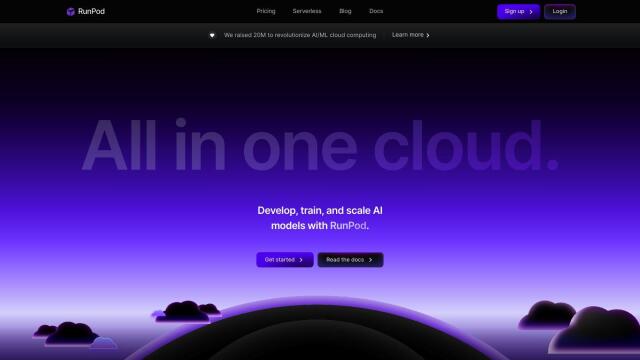
RunPod
Another good option is RunPod, a geographically distributed GPU cloud that lets you spin up GPU pods instantly. It supports a variety of GPUs, serverless ML inference with autoscaling, and more than 50 preconfigured templates for frameworks like PyTorch and Tensorflow. RunPod features include instant hot-reloading for local code changes, 99.99% uptime and real-time logs and analytics. That makes it a good choice for flexible and reliable AI model execution, particularly for those that need high-performance GPU acceleration.

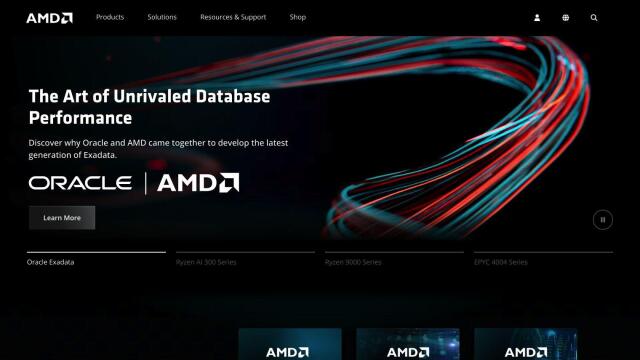
AMD
If you want to bring AI to your data center or edge devices, AMD has a variety of high-performance and flexible computing options. With products like Ryzen Desktop Processors, Radeon RX 7000 Series Graphics Cards and AMD Instinct Accelerators, AMD hopes to help businesses get insights from AI and high-performance computing in a variety of industries, including financial services.

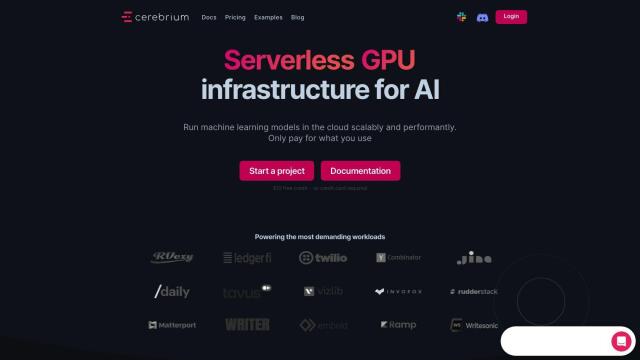
Cerebrium
Last, Cerebrium offers a serverless GPU foundation for training and deploying machine learning models at a lower cost. It offers pay-per-use pricing, 3.4s cold starts and real-time logging and monitoring. Cerebrium is designed to automatically scale and is easy for engineers to use, making it a good option for flexible AI workloads.



